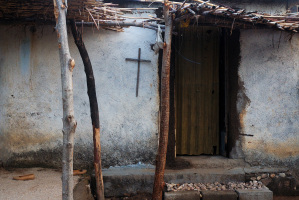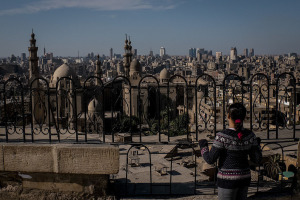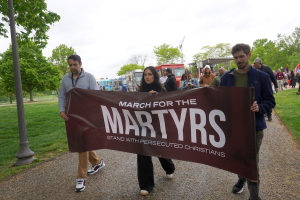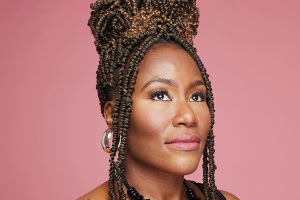'Religious leaders' sign declaration denouncing 'religious nationalism,' promoting progressive causes
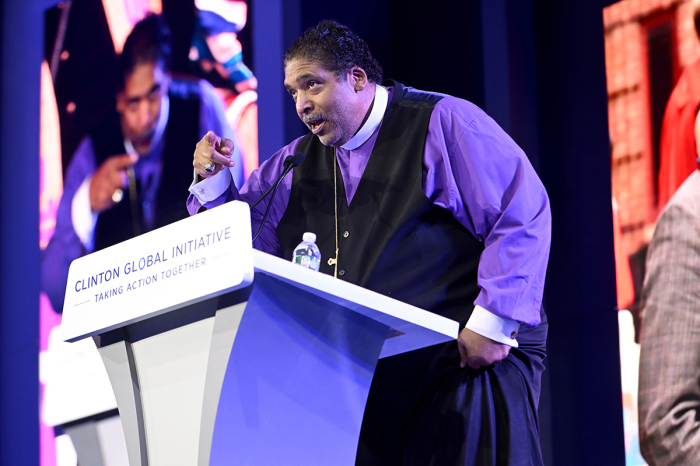
A group of Christian clergy, theologians and scholars who took part in the inaugural conference of the Yale Divinity School’s Center for Public Theology & Policy this week signed a declaration denouncing so-called "religious nationalism."
In a document titled the "New Haven Declaration of Moral & Spiritual Issues in the 2024 Presidential Election," the group of self-described "religious leaders" also pledged to devote themselves to promulgating progressive causes, and warned that "traditional values" are being politically weaponized.
Signatories led by Bishop William J. Barber II, a progressive activist who founded the Yale Center for Public Theology and Public Policy, claimed there is "a well-funded, coordinated political movement has co-opted our faith tradition and is exploiting so-called 'traditional values' to undermine democracy and divide people across this land."
Barber, who co-chairs the Poor People’s Campaign: A National Call for a Moral Revival and held a private meeting with Vice President Kamala Harris in February, featured prominently in the recent documentary "God & Country." The film produced by Rob Reiner suggested there is an encroaching "Christian nationalism" that finds its most egregious embodiment in former President Donald Trump and his supporters.
Without naming specific individuals or organizations, the New Haven Declaration suggests those who adhere to such religious nationalism are motivated solely by political power and blinded to the important moral issues that the document goes on to list.
"This distorted religious nationalism has persuaded many well-meaning Christians to focus on a narrow set of divisive cultural wedge issues while ignoring the real moral issues that are at the heart of our Scriptures and tradition," the declaration read.
The declaration does not define what it means by "traditional values" or "cultural wedge issues," but in a 2019 interview with Intelligencer, Barber suggested "the Christian right" is "a slaveholder religion," linked Christian nationalism to "white Evangelicalism," and denounced those who care about flashpoint issues such as abortion and school prayer as heretical.
"To suggest that if you’re against abortion, you’re against women’s right to choose, you’re for guns, for prayer in schools, for tax cuts, a Republican, then you have taken the moral position, that is modern-day heresy," Barber said at the time. "And we have to challenge it. But we’re not just going to challenge it just emotionally. We’re saying if you want to have a discussion about morality from a biblical standpoint, then let’s have a real one."
The New Haven Declaration signatories go on to publicly "repent" of not more effectively preaching and teaching against religious nationalism, while pledging "to proclaim in word and deed a public theology that is good news for all people."
After claiming to follow in the moral tradition of Frederick Douglass, Sojourner Truth, William Lloyd Garrison, Ida B. Wells, Reverdy Ransom, Walter Rauschenbusch, Francis Perkins, Howard Thurman, Reinhold Niebuhr, Rosa Parks, Martin King, Dorothy Day, Pauli Murray, John Lewis, Fannie Lou Hamer, and James Reeb, the signers of the New Haven Declaration explained what they believe to be "the critical moral and spiritual issues of the 2024 Presidential election."
"[W]e join our voices as religious leaders to launch a season of preaching the moral issues of living wages and union rights, healthcare and ecological justice, an end to the spilling of innocent blood, a re-imagination of criminal justice, and the protection and expansion of voting rights and equal protection guarantees," they wrote.
After describing such issues as the "weightier matters of the law," the declaration goes on to imply that the issues of concern to the Right are "manufactured controversy about minor issues."
While acknowledging it is not the job of pastors to instruct others how to vote, the declaration noted that clergy "have a responsibility to make clear how the tradition of Jesus and the prophets speaks to the world today."
"We must challenge our congregations and the wider public to choose carefully and wisely which candidates for public office best represent our true moral values," they added.
Other signers of the New Haven Declaration include Yale Divinity School Dean Greg Sterling, Affirming Ministries presiding bishop Yvette Flunder, Unitarian Universalists Association President the Rev. Sofía Betancourt, The Irresistible Revolution author Shane Claiborne, and others.
Jon Brown is a reporter for The Christian Post. Send news tips to jon.brown@christianpost.com
















